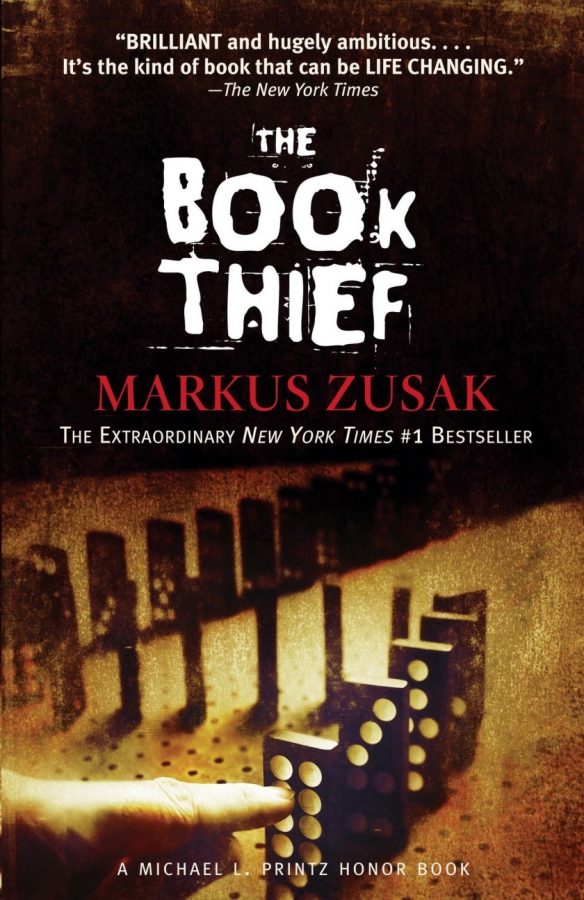Review – Markus Zusak’s – The Book Thief
On Wednesday, January 27th, the world commemorated International Holocaust Remembrance Day. Markus Zusak’s widely praised and award-winning novel The Book Thief reminds us never to forget. The novel, originally published in 2005, tells the story of a young girl living through World War II during the reign of Nazi Germany. Despite the story being fictional, it still manages to have a compelling cast of characters, narratives, and storylines that all converge in Molching, Germany.
Ironically enough, one of the figures that is imbued with the most amount of life is the narrator — Death. Stereotypically, Death is portrayed as a cold, empty concept following each and every one of us — yet Zusak chooses to make Death appear as an old friend, someone that anyone can talk to about their troubles. Over the course of the book, the characters show how their feelings develop and grow, as well as their empathy for the human race. Throughout the book, Death ridicules the decisions made by humans while providing his own perspective on the matter — which in the end leaves him haunted by how humans think and act differently.
As for the main storyline, it follows Liesel Meminger, a young orphan, as she adjusts to her new family and life at 33 Himmel Street, Molching, Germany. The portion of her life portrayed in the book is full of adventure, thievery, danger, risk, emotion, and nearly everything else that encompasses the human experience. She is placed in the heart of Nazi Germany, yet in the care of Hans and Rosa Hubermann — her kindly adopted parents that aided in hiding and saving Jews. One such Jew, Max Vandenburg, becomes Liesel’s inspiration as she writes her first book. Additionally, the plot includes Liesel’s childhood friend and classmate, Rudy Steiner, as well as countless other supporting characters that all come together to give life to the plot of this novel. There is no doubt about it, The Book Thief has the most complex and realistic characters to be found in fiction, each with their own backstories, emotions, and tragedies.
For the most part, the various people and their personalities are the main reasons why Liesel holds onto a glimmer of hope in such a dark and devastating time as the Holocaust. By interacting with the community and world around her, Liesel learns of the complexities of Jewish genocide while also forming sympathy and generosity for those doomed to their fate. It is Liesel who manages to sway Death’s view of humanity, as he observed her selflessness and growth over the years.
However, the book is not without its faults. As with any book that nears 600 pages, there are dull moments that slow the pace of the storyline, and not everyone has the time or dedication to complete it — yet do not give up, as the ending and character development are worth it in the long run. Although many people might not be committed to a 600-page book, that isn’t the only reason the book has gotten its occasional comment of dislike. Because of the sensitivity of the topics discussed, many people find it inconsiderate and disrespectful to talk about topics like the Holocaust, especially in historical-fictions. Also, Zusak has a tendency of spoiling many of the events that occur throughout the plot by using foreshadowing.
Overall, The Book Thief is a masterfully written book full of diverse and sympathetic characters, yet contains a few quirks and techniques that are not well received by everyone. In the end, it’s up to the readers to decide whether or not the book fits their novel niche.

